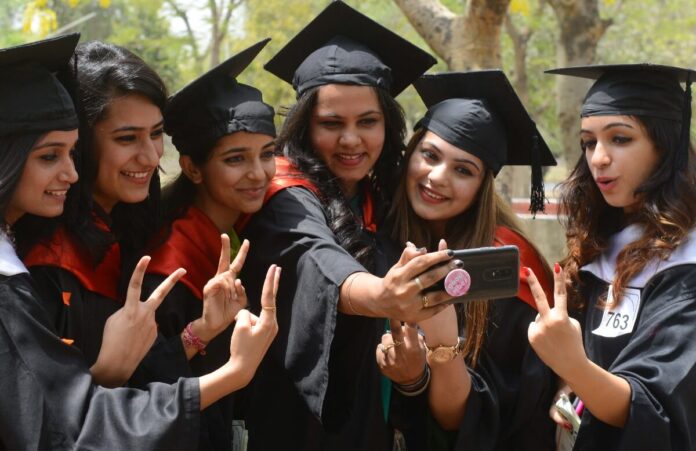Australia’s demographic landscape reveals that approximately one million Australians have Indian heritage, constituting a significant proportion of the population—1 in 26 Australians
The burgeoning educational collaboration between Australia and India is witnessing a remarkable shift, with Australian universities increasingly establishing campuses in India. Jason Clare, Australia’s Education Minister, emphasized the deepening ties between the two nations during his visit to India, where he highlighted that Australia boasts more Indian residents per capita than any other OECD country. This unique “living bridge” is now facilitating a strengthened partnership in various domains.
Australia’s demographic landscape reveals that approximately one million Australians have Indian heritage, constituting a significant proportion of the population—1 in 26 Australians. This demographic connection forms a natural foundation for collaboration, fostering stronger ties in business, education, and other collaborative ventures. Indians have become the second-largest migrant group in Australia, driven in part by the tech sector’s demand for skilled workers, with over 710,000 Indians currently residing in the country.
The bilateral commitment to facilitating mobility and collaboration was underscored during Prime Minister Narendra Modi’s visit to Sydney, where a migration deal was announced, easing travel and work for students, academics, and professionals between the two nations. This commitment was further reinforced during Australian Prime Minister Anthony Albanese’s visit to India, leading to the signing of an agreement for the mutual recognition of education qualifications, a significant step in boosting educational cooperation.
The establishment of Australian university campuses in India marks a significant milestone in the evolving collaboration between the two nations
The tangible outcomes of these agreements are now evident with the establishment of international campuses in India by Australian universities. Deakin University and the University of Wollongong are pioneering this initiative with campuses at GIFT City. These developments underscore a paradigm shift in international education, emphasizing that collaboration is a two-way street. The Australian universities’ decision to establish campuses in India is a testament to the evolving nature of global education, transcending geographical boundaries.
These campuses are set to offer postgraduate courses at a considerably lower cost than in Australia, presenting a unique opportunity for Indian students. Deakin University will offer courses in cybersecurity and business analytics, while the University of Wollongong will focus on computing and data analytics. The affordability of these courses opens doors for Indian students who may not have the means to study abroad.
Additionally, bilateral meetings between education ministers from both countries have resulted in the signing of five memoranda of understanding (MoUs) between higher education institutions. These MoUs encompass collaborative research in crucial areas such as agriculture, water management, critical minerals, healthcare, artificial intelligence, renewable energy, and climate change. This multifaceted collaboration reflects a commitment to advancing knowledge and innovation through joint efforts in key sectors.
The establishment of Australian university campuses in India marks a significant milestone in the evolving collaboration between the two nations. It symbolizes a shift in the landscape of international education, demonstrating that educational partnerships are now characterized by a reciprocity that benefits both students and institutions on a global scale.
***********************************************************
Readers
These are extraordinary times. All of us have to rely on high-impact, trustworthy journalism. And this is especially true of the Indian Diaspora. Members of the Indian community overseas cannot be fed with inaccurate news.
Pravasi Samwad is a venture that has no shareholders. It is the result of an impassioned initiative of a handful of Indian journalists spread around the world. We have taken the small step forward with the pledge to provide news with accuracy, free from political and commercial influence. Our aim is to keep you, our readers, informed about developments at ‘home’ and across the world that affect you.
Please help us to keep our journalism independent and free.
In these difficult times, to run a news website requires finances. While every contribution, big or small, will makes a difference, we request our readers to put us in touch with advertisers worldwide. It will be a great help.
For more information: pravasisamwad00@gmail.com



